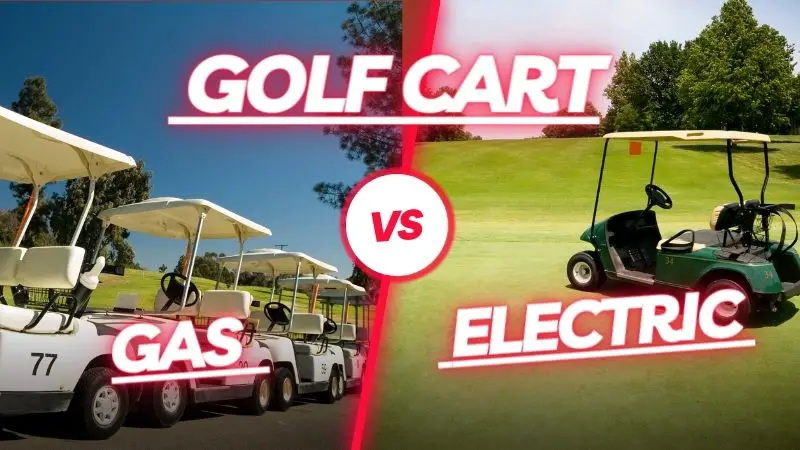Content Menu
● Introduction
● Understanding Golf Carts
● Gas Golf Carts
>> Advantages
>> Disadvantages
● Electric Golf Carts
>> Advantages
>> Disadvantages
● Comparative Analysis
>> Cost Analysis
>> Maintenance Requirements
● Choosing the Right Golf Cart
● Conclusion
● Frequently Asked Questions
>> 1. What is the lifespan of a gas vs electric golf cart?
>> 2. Are electric golf carts more cost-effective?
>> 3. Can gas golf carts be used in residential areas?
>> 4. How do I maintain my golf cart?
>> 5. What are the best brands for gas and electric golf carts?
Introduction
Golf carts have become an essential part of the golfing experience, providing convenience and ease of transportation across the course. As the popularity of these vehicles has grown, so has the debate over which type is superior: gas or electric. This article aims to explore the differences, advantages, and disadvantages of both gas and electric golf carts, helping you make an informed decision based on your needs and preferences.

Understanding Golf Carts
Golf carts are small vehicles designed primarily for transporting golfers and their equipment around a golf course. They have evolved from simple push carts to sophisticated machines equipped with various features. The first golf carts were introduced in the 1950s, and since then, they have undergone significant advancements in technology and design.
Gas Golf Carts
Advantages
Gas golf carts are known for their robust performance and speed. They typically have higher top speeds than electric models, making them suitable for hilly terrains and longer distances without the need for frequent refueling. Additionally, gas carts can be refueled quickly, allowing for extended use without downtime.
Disadvantages
However, gas golf carts come with their own set of challenges. They require regular maintenance, including oil changes and engine checks, which can add to the overall cost of ownership. Furthermore, gas-powered carts produce emissions, contributing to environmental pollution, which is a significant concern for many users today.
Electric Golf Carts
Advantages
Electric golf carts are celebrated for their eco-friendliness. They produce zero emissions, making them a greener option compared to gas-powered carts. Additionally, electric carts are generally quieter, providing a more peaceful golfing experience. They also have lower operating costs, as electricity is often cheaper than gasoline, and they require less maintenance since they have fewer moving parts.
Disadvantages
On the downside, electric golf carts can have limitations in terms of range and performance. They rely on batteries that need to be charged regularly, which can be inconvenient, especially on longer courses. Battery life can also be a concern, as they may need to be replaced every few years, adding to the overall cost.

Comparative Analysis
When comparing gas and electric golf carts, several factors come into play. Performance-wise, gas carts often outperform electric models in speed and power, making them ideal for hilly courses. However, electric carts excel in terms of cost-effectiveness and environmental impact.
Cost Analysis
The initial purchase price of gas and electric golf carts can vary significantly. Generally, electric carts may have a higher upfront cost due to the battery technology, but they can save money in the long run through lower operating costs. Gas carts, while cheaper initially, can incur higher fuel and maintenance expenses over time.
Maintenance Requirements
Maintenance is another critical factor to consider. Gas carts require regular engine maintenance, while electric carts need battery care. Understanding these requirements can help you choose the right cart based on your willingness to invest time and money into upkeep.
Choosing the Right Golf Cart
When deciding between a gas or electric golf cart, consider your specific needs. If you frequently play on hilly courses or require a cart for extended periods, a gas cart may be more suitable. Conversely, if you prioritize environmental concerns and lower operating costs, an electric cart could be the better choice.
Conclusion
In conclusion, both gas and electric golf carts have their unique advantages and disadvantages. The best choice ultimately depends on your personal preferences, playing habits, and environmental considerations. By weighing the pros and cons of each type, you can make an informed decision that enhances your golfing experience.

Frequently Asked Questions
1. What is the lifespan of a gas vs electric golf cart?
Gas golf carts typically last around 10-15 years, while electric carts can last 15-20 years with proper maintenance.
2. Are electric golf carts more cost-effective?
Yes, electric golf carts generally have lower operating costs due to cheaper electricity and less maintenance.
3. Can gas golf carts be used in residential areas?
Yes, but local regulations may apply, so it's essential to check with your municipality.
4. How do I maintain my golf cart?
Regular maintenance includes checking the battery (for electric carts) or the engine (for gas carts), ensuring tires are inflated, and keeping the cart clean.
5. What are the best brands for gas and electric golf carts?
Popular brands include E-Z-GO, Club Car, and Yamaha, known for their reliability and performance in both gas and electric models.










































